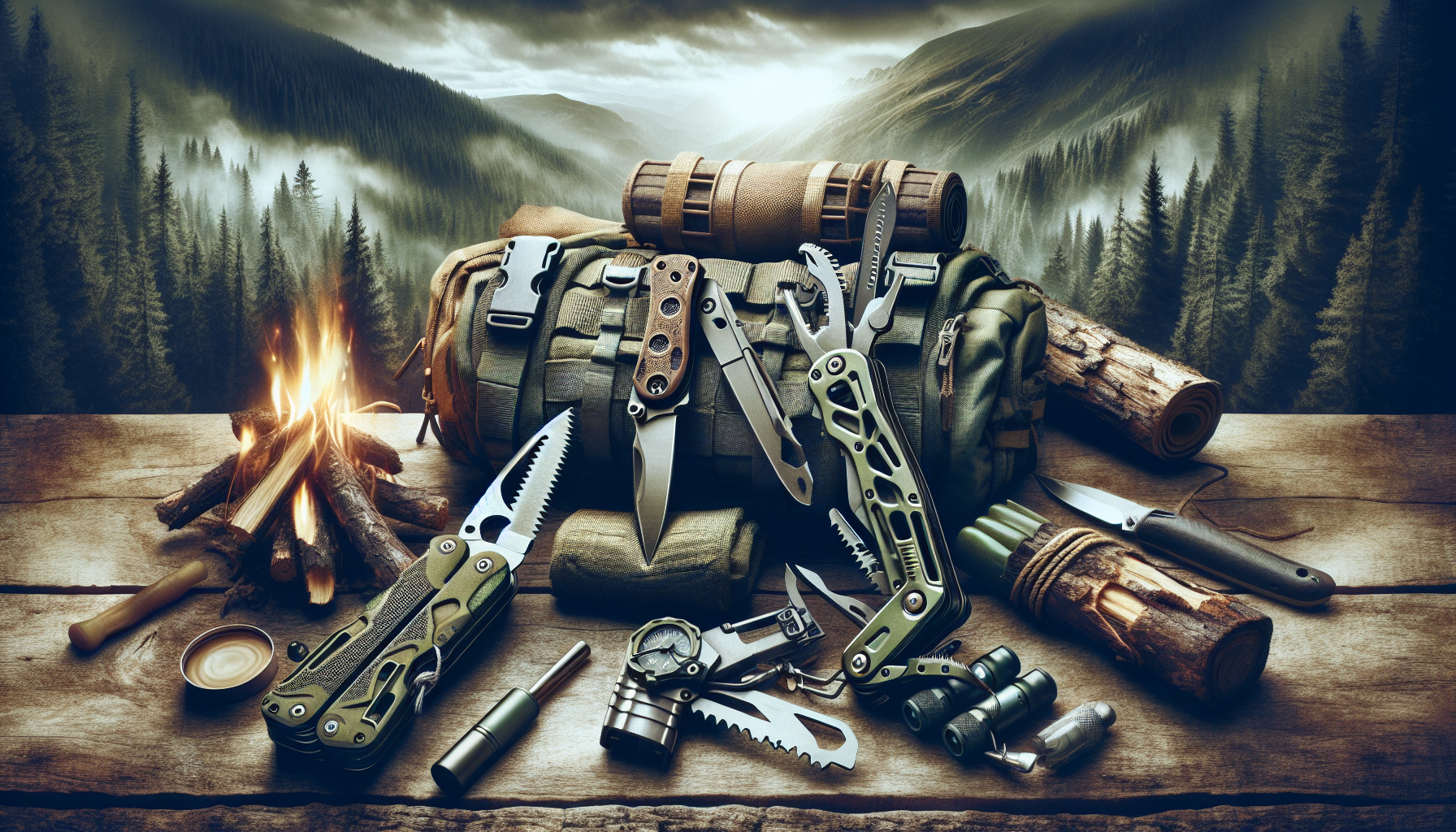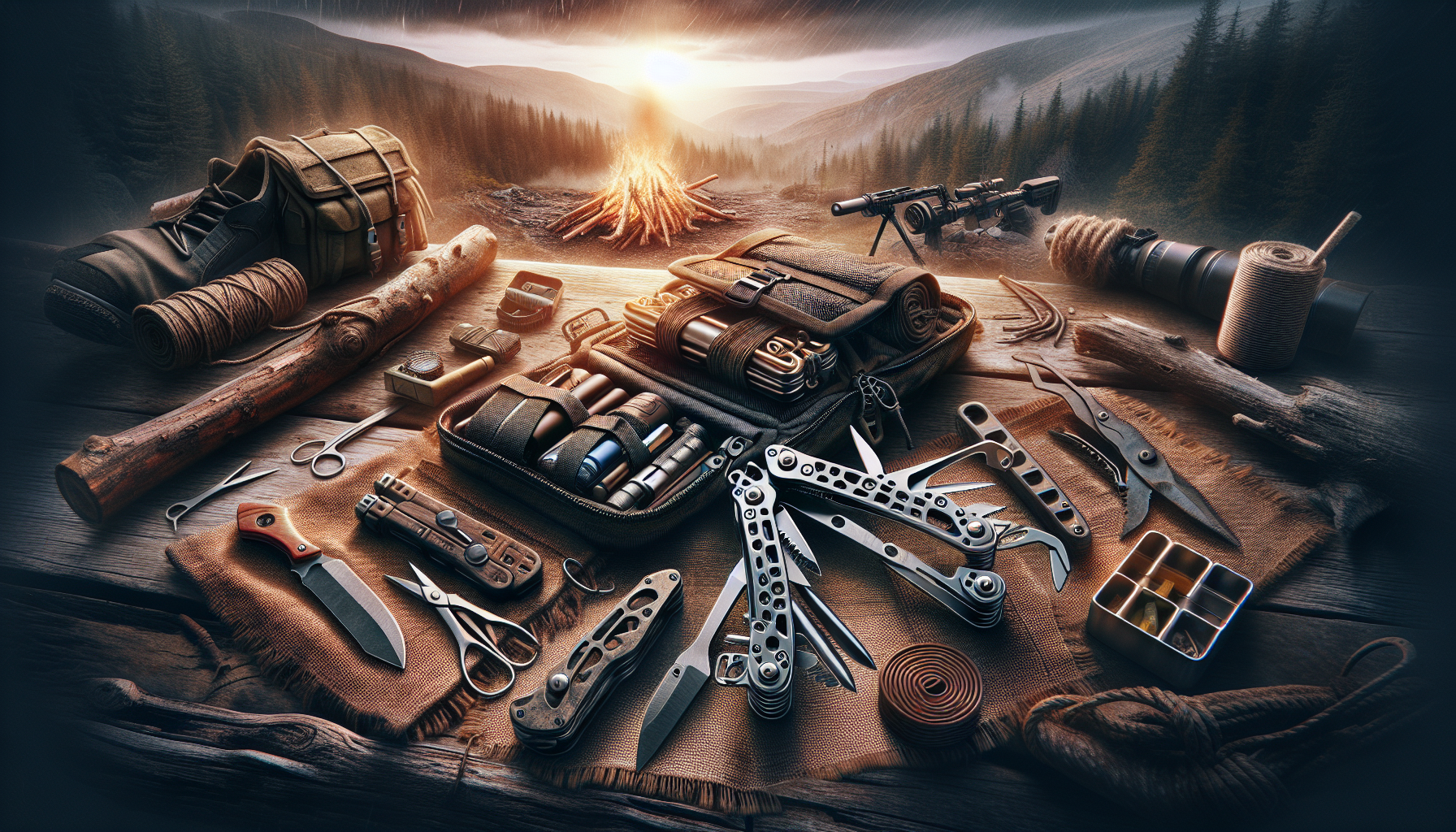In this article, you will discover the fascinating world of survivalists and uncover the answer to the burning question: What does a survivalist do? Embark on a journey that explores the skills, mindset, and preparations that these dedicated individuals undertake to ensure their readiness for any unforeseen circumstances. From mastering essential wilderness survival techniques to stockpiling necessary supplies, you will gain insight into the multifaceted role of a survivalist and how their knowledge can be a valuable asset in the face of adversity. So, fasten your seatbelt and get ready to delve into the intriguing realm of survivalism.
What Does a Survivalist Do?

Definition of a Survivalist
A survivalist is someone who actively prepares for and adapts to emergency situations and potential disasters. They prioritize self-sufficiency and honing the skills necessary to survive in the most challenging of circumstances. While some may view survivalists as extreme or paranoid, their focus on preparedness can actually bring a sense of peace and confidence in the face of uncertainty.
Skills and Knowledge
Survivalists possess a wide range of skills and knowledge that enable them to thrive in difficult situations. These include emergency preparedness, food and water procurement, shelter construction, fire starting, first aid and medical skills, navigation and orientation, self-defense and security, and community building. By mastering these essential abilities, survivalists ensure they have the tools to survive and potentially thrive in any scenario.
Emergency Preparedness
Emergency preparedness is the foundation of survivalism. This includes developing a comprehensive emergency plan, which involves identifying potential risks and creating strategies to mitigate them. Survivalists often stockpile necessary supplies such as food, water, and essential supplies that can sustain them for an extended period. They are skilled at assessing risks and responding swiftly to emergent situations.
Food and Water Procurement
Survivalists understand the importance of securing food and water. They possess knowledge of edible plants, hunting, and fishing techniques, and water purification methods. They are adept at foraging for wild edible plants, tracking animals for sustenance, and fishing in rivers, lakes, or oceans. Additionally, survivalists are proficient in water sourcing and treating techniques to ensure an adequate supply of potable water.

Shelter Construction
Creating shelter is another vital skill for survivalists. They know how to build shelters using various materials found in their environment, such as branches, leaves, and rocks. They can craft a temporary shelter to protect themselves from extreme weather conditions, including strong winds, freezing temperatures, or heavy rain. Survivalists possess the ability to construct both makeshift shelters and more permanent structures, depending on the situation and available resources.
Fire Starting
The ability to start a fire is crucial for survivalists. Fire provides warmth, light, and the means to cook food and purify water. Survivalists use various methods to start fires, such as friction-based techniques like bow drills or hand drills, as well as tools like matches or lighters. They understand how to find and prepare suitable tinder, kindling, and firewood to ensure a successful fire-starting experience.
First Aid and Medical Skills
Survivalists recognize the importance of first aid and medical skills. In emergency situations, access to professional medical help may be limited or nonexistent. As a result, survivalists are trained in basic first aid techniques, including wound care, CPR, treating fractures, and managing infections. They are knowledgeable about herbal remedies and natural alternatives to commercial medicines. By having these skills, they can effectively address injuries, illnesses, and other health concerns that may arise during a crisis.
Navigation and Orientation
Surviving in unfamiliar territory requires navigation and orientation skills. Survivalists are adept at using maps, compasses, and other navigational tools to determine their location and plot a course. They understand how to read topographic maps, identify landmarks, and navigate using celestial bodies like the sun or stars. Survivalists also possess knowledge of natural signs and patterns, such as the direction in which moss grows on trees or the behavior of wildlife, to aid them in finding their way.
Self-defense and Security
Being able to protect oneself and loved ones is a crucial aspect of survivalism. Survivalists learn various self-defense techniques, including martial arts, firearm use, and hand-to-hand combat. They prioritize personal safety and understand the importance of situational awareness. Survivalists are skilled at assessing potential threats and taking appropriate action to ensure their security while still being mindful of legal and ethical considerations.
Community Building
Survivalists recognize the value of a strong community in times of crisis. They actively seek to build connections with like-minded individuals who share their preparedness mindset. Survivalists engage in networking and collaboration to share knowledge, resources, and skills with others. They understand that a collective effort can greatly enhance their chances of survival and recovery in the face of adversity.
In conclusion, survivalists are individuals who prioritize being prepared for emergencies and potential disasters. Through a diverse skill set and valuable knowledge, they equip themselves to handle a wide range of challenging situations. From emergency preparedness and food/water procurement to shelter construction, fire starting, first aid, navigation, self-defense, and community building, survivalists strive to ensure they have the necessary tools to weather any storm. So, embrace the friendly guidance of survivalists as they offer valuable insights on preparedness, self-reliance, and resilience in the face of uncertainty.
